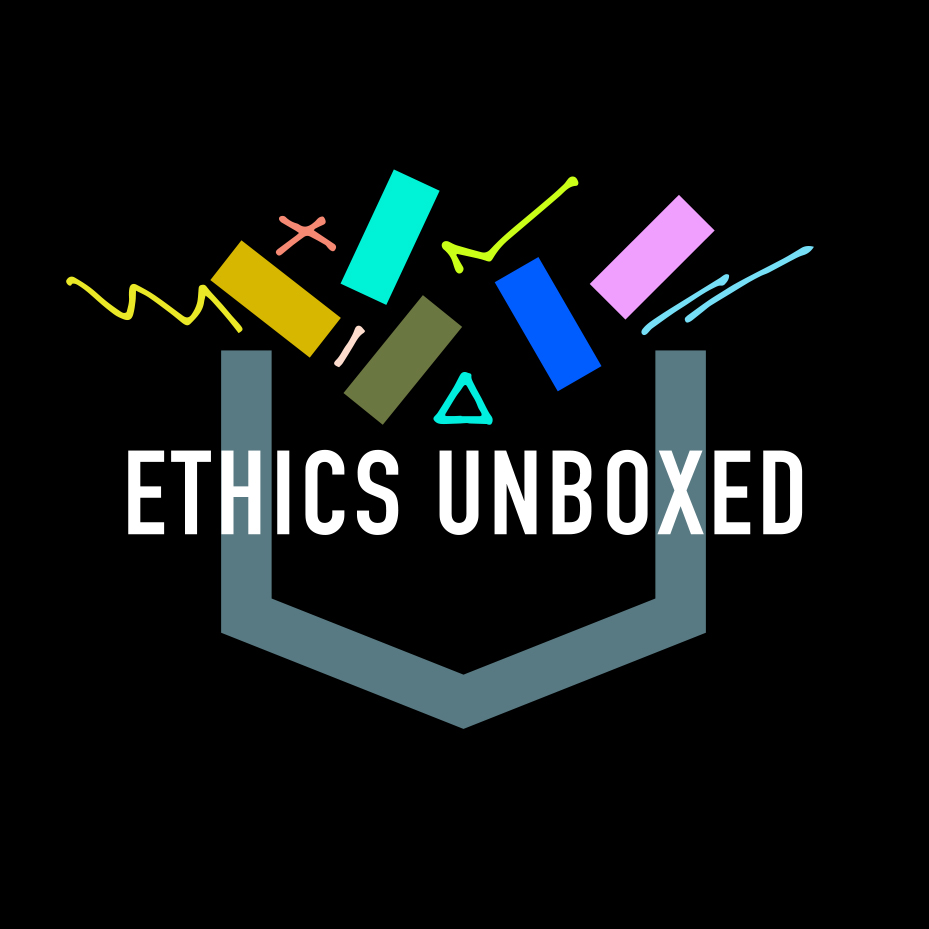ETHICS UNBOXED LESSON 9
Virtue, are you being your best self?
We’ve all heard the common catchphrase (and insta hashtag) ‘living your best life’. Instead, virtue ethics asks us: are you being your best self?
Here’s a little activity for you: if you can, go find a wall near you. Keep your arms by your side and lean against the wall – put a bit of pressure on so you feel your arm really pushing into the wall. After about 30 seconds, lean away from the wall.
If you’ve done it right, your arm should rise into the air involuntarily. Your arm has (very briefly) recalibrated its default pressure settings. If you’d like to, try it again, but this time, try really hard to stop your arm from rising. It’s hard work! You’ve primed your arm to rise, and rise it shall.
It turns out, it’s not just our limbs that we can ‘prime’ in different ways. Our thoughts, feelings and actions can be similarly primed – though it takes a bit more than thirty seconds. Our decisions can be primed in different ways by our past actions and choices.
For instance, when we’re in a particularly introverted stage of life, where hanging out at home is our preference, we get in the habit of turning down social invitations. After a while, even before we’ve thought about the invite – does it sound fun? Are they good friends? – we’re already mentally constructing our excuse for not coming.
Understanding the way our past choices prime the way we feel about our current decisions is the crucial point for virtue ethics. Virtues are traits of character that incline us toward what’s good.
The more times we make good, virtuous choices, the more primed we are to make them again in the future. It becomes a less difficult process.
However, the more times we choose against what’s good, the harder it gets. Instead of virtues, we develop vices. These vices don’t make it impossible to make good choices – just like it’s not impossible to keep your hand held down after leaning against the wall – but it feels less natural to us to do so.
We’ve got to work that bit harder. We no longer feel the “it’s a big deal” sting of doing something wrong – that feeling fades the more times we do it. So we’re more likely, if we’re not really engaged in what’s happening, to default to what we’ve done before.
Virtue ethics recommends we set ourselves up for success. Make the choices now that you want to come easily to you in the future.
If you’re anything like me, a lot of your time in the shower is spent imagining everything your ideal self would be able to do, achieve and be. Virtue ethics is about starting to close the gap between who we are and who we want to be.
One big puzzle for virtue ethics is to work out exactly what counts as a virtue. Virtue ethics owes a lot to the Ancient Greeks. But they didn’t have much room in their philosophy for kindness and benevolence. While those virtues don’t appear until much later with the advent of Christianity, kindness is now considered a primary virtue.
A puzzle for anyone who wants to cultivate virtue is to work out which ones really matter. Fidelity? Kindness? Integrity? Reliability? Courage? Honesty? A number of social, cultural and moral beliefs can be encoded in our ideas of virtue. For instance, we often consider ‘toughness’ to be a virtue – particularly for men – but whether it is a virtue, and what that virtue entails, is up for debate as we realise the importance of empathy and emotional intelligence.
A life of virtue is not an easy way to live your life – we all want to take ethical ‘cheat days’ where we throw all our habits out the window and just indulge. Plus, thinking about what the most virtuous version of you would do in a complex situation isn’t always helpful: sometimes, it’s just not clear what the path of virtue is.
Still, maybe the person who is best prepared to work out a virtuous option in an impossible situation is a person who is, you know, virtuous.
SELF-REFLECTION QUESTIONS
- Imagine if someone had been watching your behaviour today. Would they have assigned any virtues to you? What about vices?
- Let’s take as our starting point that nobody has a perfectly accurate picture of their own virtue or vice. Regardless of whether you think you’re an ethical saint or sinner, what could you do to get a more impartial picture of where you’re at?
- Think about the person you really want to be, or the person you think you are at your core, but don’t always feel like you’re able to be. What gets in the way of you being that fully realised version of yourself?
- Who is someone you consider to be virtuous – someone who you admire because of their moral character? What is it about them that you admire? Can you identify some of those traits in yourself? Is there anything you could do to surface those traits in your own life?
